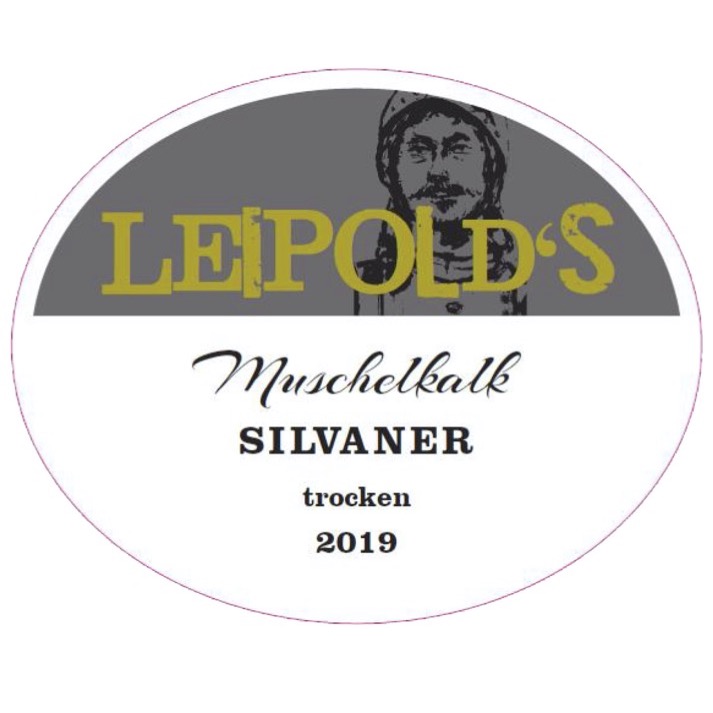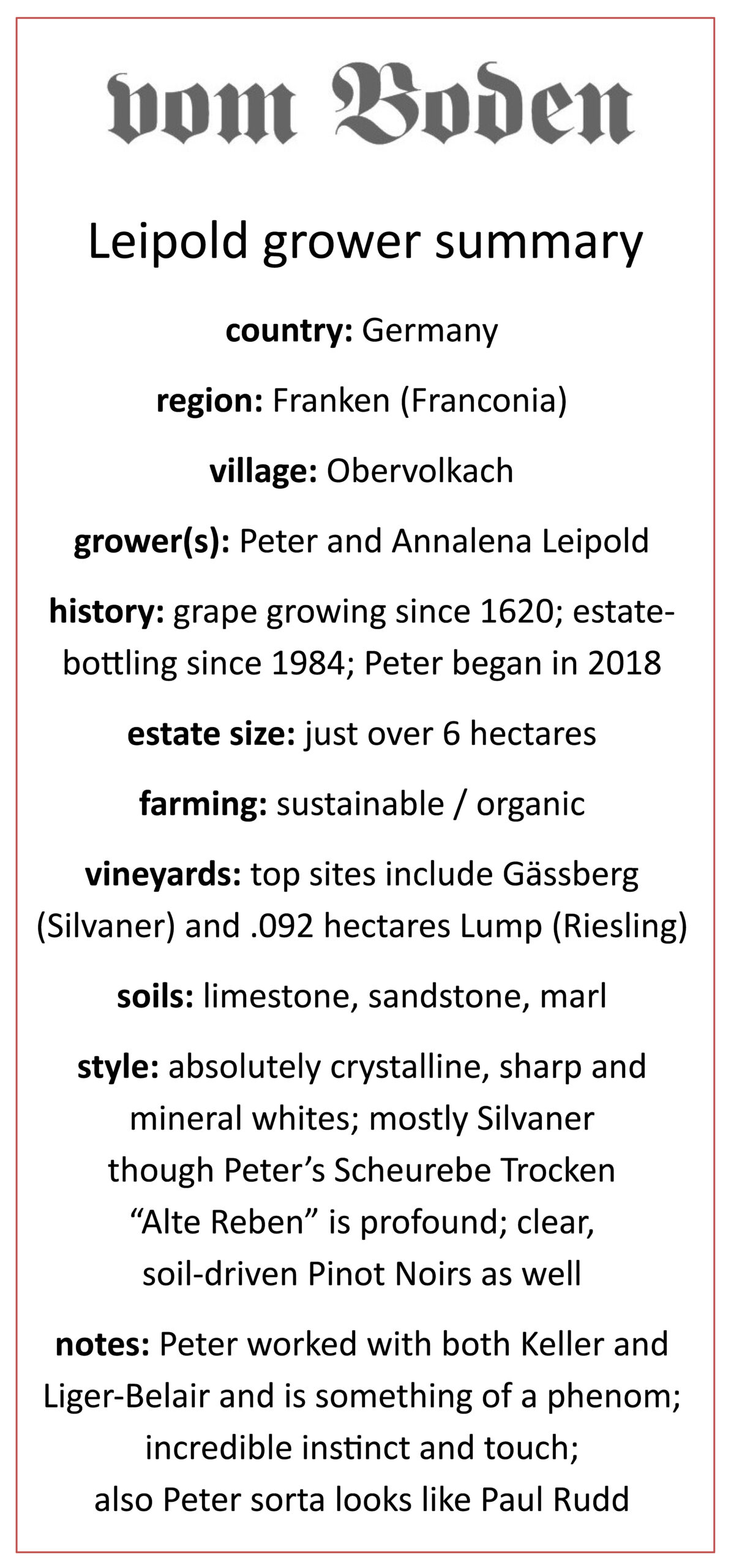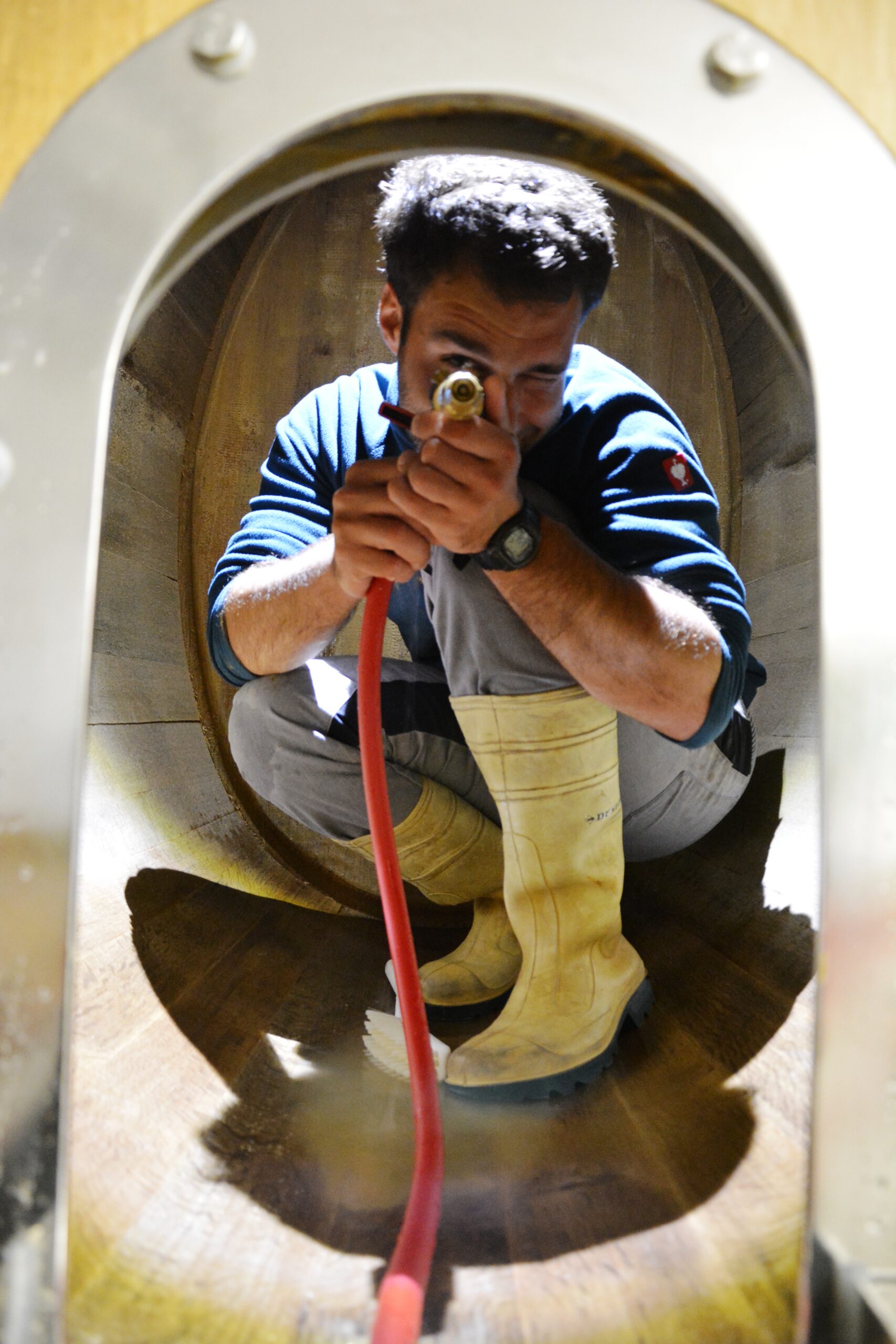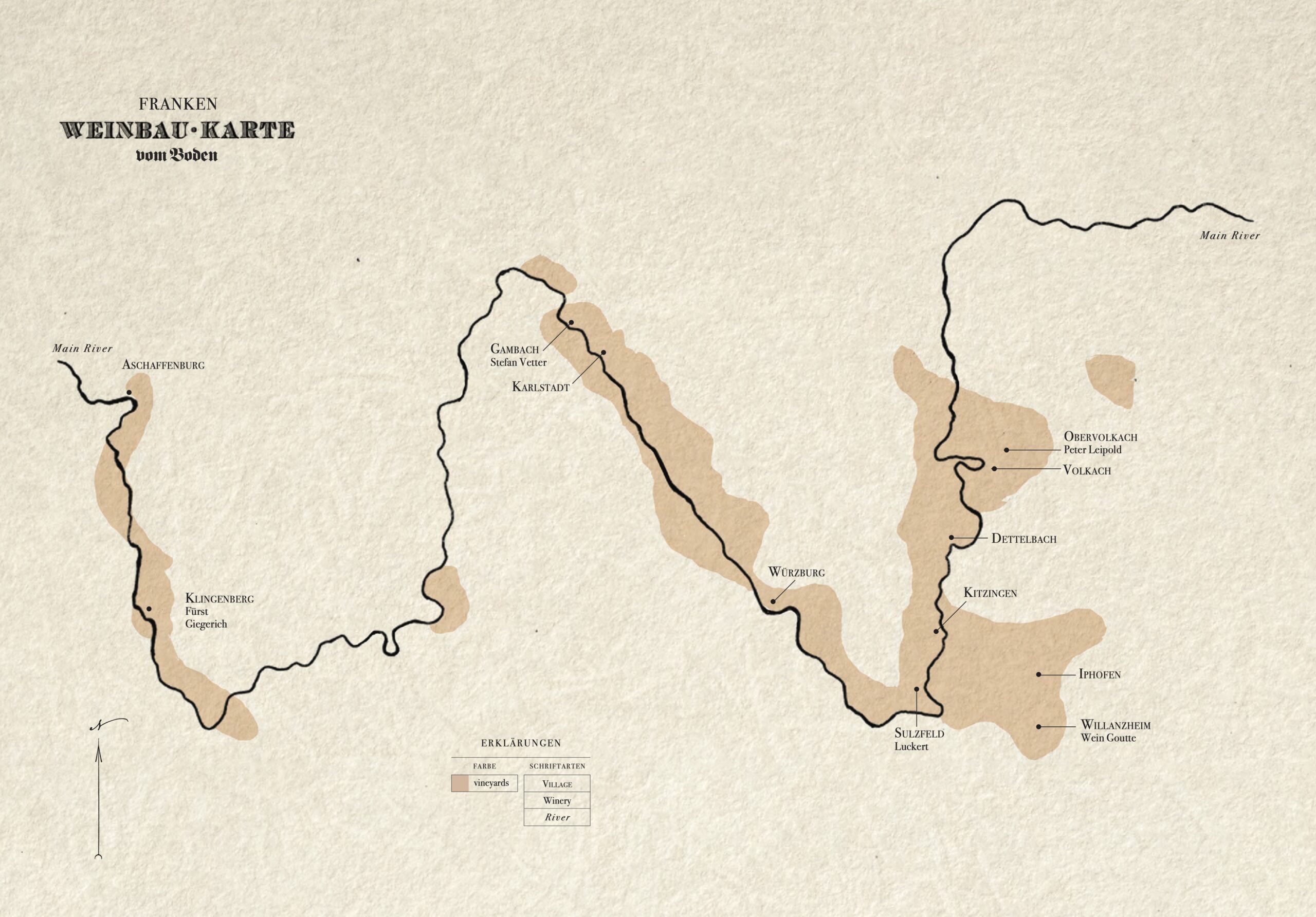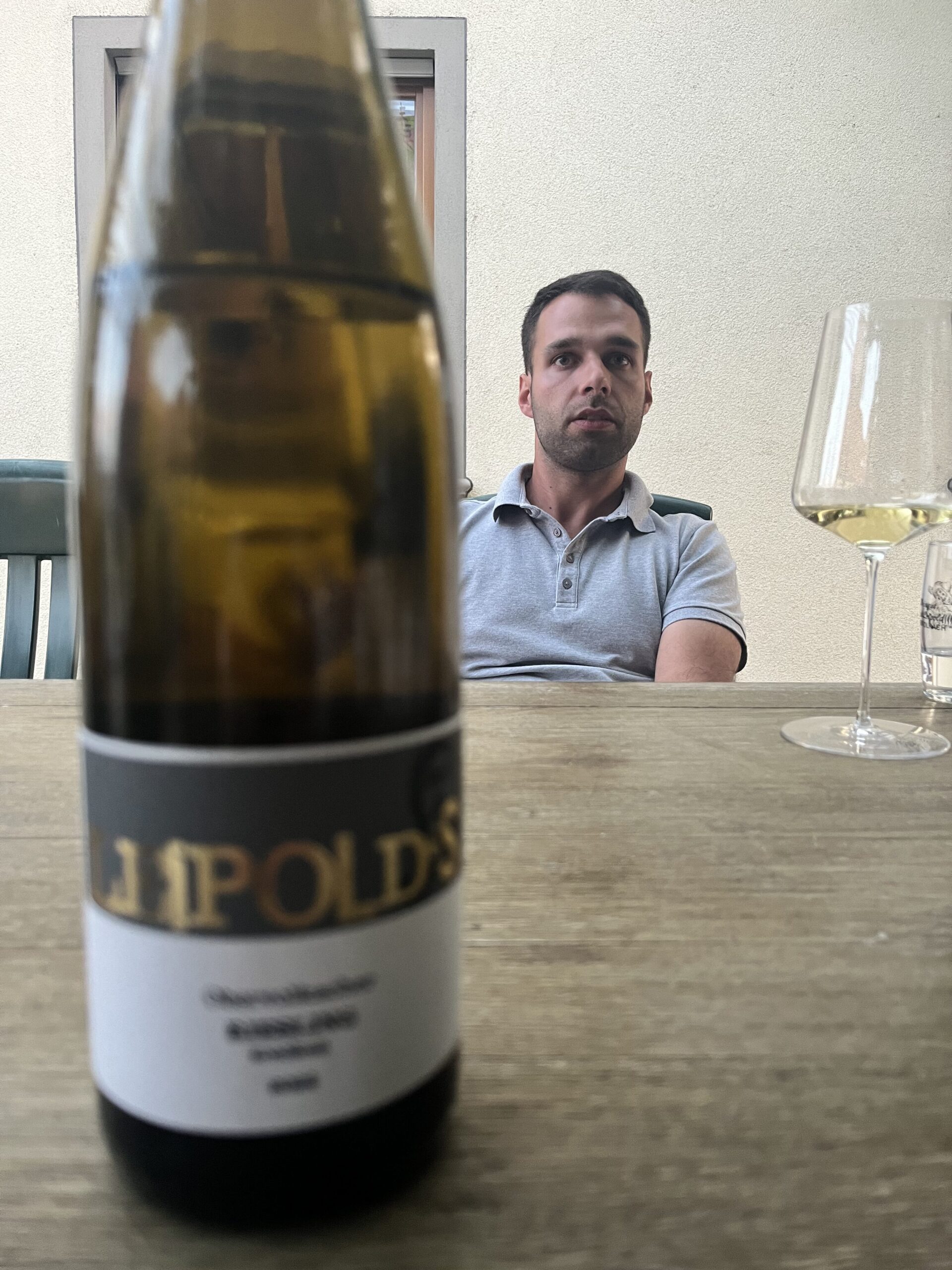“Peter’s wines touch my heart.” – Klaus Peter Keller
The full quote is probably worth including, because it’s so deeply heartfelt.
I read it and the emotion feels nearly palpalable: “For me, Peter Leipold is on the way to becoming a young genius… He worked for two years here at our winery before leaving for Liger-Belair. He has a special feeling for wine, something you don’t learn at school. His Silvaners are great, soil-driven wines that evaporate in the glass… What Peter does with Pinot and Silvaner in Franconia reminds me of what Julian Haart is doing in the Mosel… Peter’s wines touch my heart.”
I have had a similar emotional reaction to Peter’s wines, though for me the word that best summarizes the experience is this: joy.
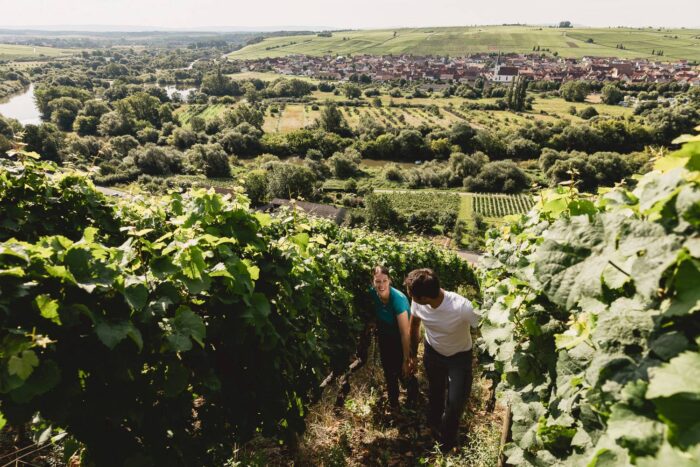
I can’t exactly articulate the how or the why.
I suppose there is a clarity to Leipold’s wines, a very specific type of brilliance that makes the wines feel essential, honest, buoyant – like the sun shining in a winter sky and the warm sunlight falling upon your skin.
They feel to me uncannily perfect, which is a word I hate to use as it feels so generic and intellectually lazy. Yet here, in these wines, there is nothing out of place. They feel finessed, with appropriate curves. They are not too austere and linear, nor too cut or sharp.
Leipold’s wines feel good. They are deeply refreshing – they are mouthwatering. The wines seem to me to smile; they conjure a certain optimism.
Frankly, the fact that we’ve found a strong market for these wines speaks to their inherent quality.
After all, we are largely talking about grapes that not many people care about (Silvaner, Scheurebe, Bacchus), from a region nearly no one knows anything about (Franconia, huh?).
Many of these wines arrive to us in bizarre bottle shapes (the Bocksbeutel, yes, named after a goat’s scrotum) that are impossible to stock and store easily and all of which have a label design from say 1985 (god bless them – remind me to finish my essay on the saving grace of explicitly unhip wine labels).
Yet despite all of these significant liabilities, people want these wines.
People open them, taste, smile, and then buy more. Honestly, in this age of marketing slick-ness and Instagram-inspired sameness (oh look – a hip and insultingly expensive wine from the Jura!), the fact that wildly uncool wines have found a passionate fan base almost makes me believe we’re not absolutely ****ed, as a civilization I mean.
Peter Leipold and Silvaner in Bocksbeutel as the antidotes to our troubled times?
Unlike our other Franken growers, like say Stefan Vetter, who is essentially a punk rock artist in Franconia, if not truly of Franconia (you following me?), or similarly Wein Goutte, an estate consisting of two ex-chefs approaching farming and winemaking as the artform of blending ingredients, Leipold is our one very traditional, truly Franken producer.
There is Franconia in his blood; there is a deep pride and connection to the land here. If you don’t believe me, look at the absolutely psycho 1984 Bocksbeutel picture to the right. If there is anything more Franken than that, I’ve never seen it.
Keller introduced me to Peter, as you might have guessed from the quote above, and I first tasted these wines, more or less blind (during the pandemic, alone in my kitchen). I was blown away. My notes from this first tasting are embarrassing; they include words like, “wowowowow.”
This is a tiny, three-generation family estate consisting of Peter, his wife Annalena, very young son Stefan, father Paul and mother Inge. Together the family farms only around six hectares, way on the east side of Franconia.
Peter returned to the winery in 2018, after working with Keller, Liger-Belair and many others. If there is an open, simple kindness to Peter, something that speaks of a quiet village life, the more complex truth is that Peter knows what’s up. He has been places and seen things – this fact, however, has not changed him. Despite his rather A-list education, Peter is obviously most comfortable in his village, with his family.
What a gift reallyl, to know, exactly, where you are supposed to be.
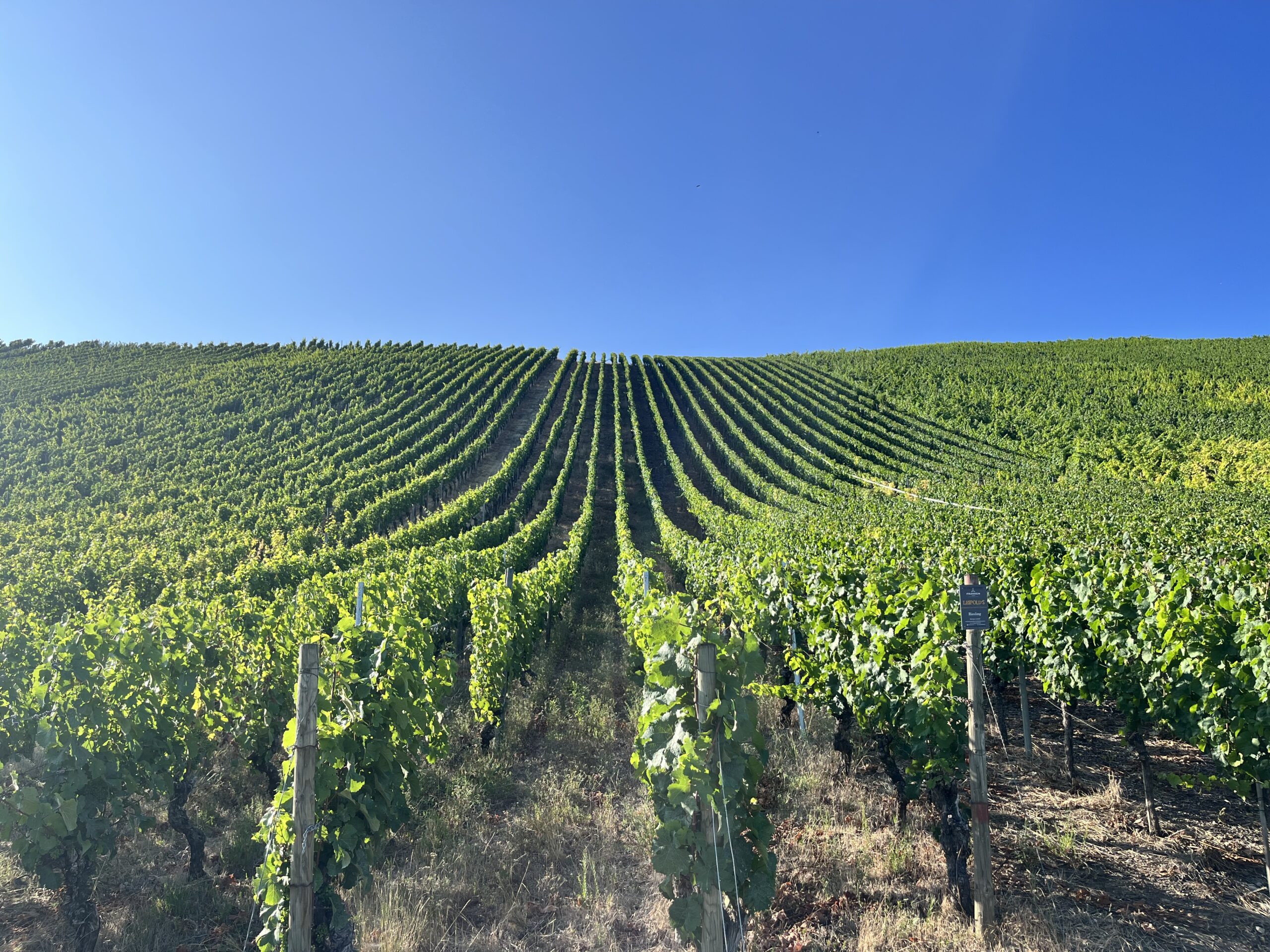
The village, which is so much fun to say – Obervolkach (I pronounce it, “Ober Folk AK!” with a demonic accent on the final “AK!”) – is in fact near-ish to Iphofen, the rather beautiful village of extraordinary flower boxes where the Wirsching estate makes basically the only other Franken Bocksbeutels that one can find in this country. Wirsching, keep in mind, farms 225 hectares and produces nearly 40,000 cases of wine a year. This is, in fact, one of the single largest privately owned wineries in all of Germany. So if they dominate the U.S. Bockseutel game (and they do), in a way we are comparing apples to oranges.
Yes, they both bottle Franconian Silvaner in Bocksbeutel, but that’s probably where the similarities end.
Check out our map, above and to the right, which shows the general region of Franconia, including where Peter is, as well as a few other important Franken estates including Fürst, Giegerich, Vetter, Luckert, Wein Goutte and the village of Iphofen. Also see our tab below, “About Franconia,” for, well, more on Franconia.
I can honestly say I’ve tasted with few young growers who have such a natural confidence and a natural touch, such a mature feel at such a young age. Peter makes it all look very easy – fun even?
We are back to our meta-theme of joy.
Go taste for yourself.
